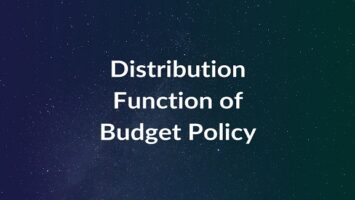Modern Concept of Fiscal Policy:
The classical concept of fiscal policy has not been accepted by modern economists like Keynes and Lerner. They believed that the government has to play a positive role so as to regulate and control the economy by means of taxes and expenditures, which they called the principle of functional finance.
To put it differently, financial activities that are undertaken to correct deflation or inflation go by the name of functional finance. Thus, the main function of functional finance as its protagonists maintain is to cure inflation and deflation. Prof. Abba P. Lerner is the champion of functional finance. It is nothing but the modern concept of fiscal policy.
Modern economists rejected the concept of classical economists, that supply creates its own demand, and, therefore, there is no possibility of unemployment, and the equilibrium in the economy is automatically achieved due to the market forces. Contrary to this, Keynes believed that in an advanced economy, the propensity to consume tends to diminish as income increases, in other words, a propensity to save increases with the increase in income. Hence, a larger proportion of the additional income is saved and not spent. The tendency of less consumption and larger savings results in lowering the demand for goods and services produced at that time; hence dis-equilibrium occurs in the economy. Thus, to maintain income and employment at the present level, it is necessary to offset the effects of the decrease in demand for output due to a decrease in consumption with a corresponding increase in public expenditure. Hence, if unemployment is to be avoided, the gap between income and expenditure must be filled either by government expenditure or by increasing the propensity to consume. For instance, during a period of depression, the effective demand is not enough to absorb the available supply of goods and services, resulting in unemployment and under-employment. Therefore, according to modern economists, to maintain full employment and income, it is the duty of the government to increase public expenditure directly by undertaking public works programmes on large scale and thereby inducing people to spend more.
Thus, modern fiscal policy is the policy of government under which the government uses its expenditure and revenue programmes to produce desirable effects and avoid undesirable effects of the increase in aggregate production and employment. In other words, modern fiscal policy is a technique to attain and maintain full employment by manipulating public expenditure and revenue in such a way as to keep an equilibrium between effective demand and supply of goods and services at that time. Thus, modern fiscal policy is nothing but the application of the principle of functional finance.









Comments (No)